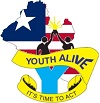
Sexual and Reproductive Health and Rights (SRHR) remains a crucial and evolving topic in the modern world. It refers to a range of interventions and initiatives aimed at promoting and protecting the sexual and reproductive health and rights of individuals. It encompasses various aspects, including education, access to information and services, advocacy, policy development, and community engagement. It encompasses a range of issues related to sexuality, reproduction, and access to healthcare services.
The Amplifying Rights Network – ARN, a network of 11 CSOs in Liberia, to which Youth Alive Liberia is one of the key member organizations has organized one of the biggest SRHR Conference, scheduled for 26th – 28th May 2023 at the Ministerial Complex, Monrovia. The conference is one of its kind and is expected to reach over 400 participants, with dignitaries expected to grace the two days event.

Since her launch in December 2022, ARN has been instrumental in bringing together SRHR partners and stakeholders to address the gaps in accessing SRHR and services. The Network through her partner RFSU aims at supporting and amplifying the voices of Liberian to advance sexual reproductive health and rights for all.
SRHR in Liberia have seen significant areas of focus for both the Liberian government and international organizations. Liberia, like many other countries, faces various challenges related to SRHR, including high maternal mortality rates, limited access to contraception and family planning services, inadequate comprehensive sexuality education, and prevalent gender-based violence. Efforts have been made to address these issues and improve SRHR outcomes in the country.
Efforts have been made to address these issues and improve SRHR outcomes in the country.
Some of the issues to be discussed extensively during the SRHR conference 2023 include:
Comprehensive Sexuality Education: There is growing recognition of the importance of comprehensive sexuality education. It refers to a curriculum that provides age-appropriate information about human sexuality, relationships, consent, gender equality, and reproductive health. It is essential to empower individuals with knowledge and skills related to sexual and reproductive health. Liberia has made progress in integrating sexuality education into the curriculum of schools, with a focus on promoting gender equality, preventing teenage pregnancies, and reducing the spread of sexually transmitted infections (STIs), including HIV/AIDS. However, more efforts are needed to ensure widespread implementation and address cultural and social barriers
Access to Contraception: Ensuring access to a wide range of contraceptive methods is an essential component of SRHR. Modern contraceptive methods empower individuals to make informed choices about their reproductive lives, prevent unintended pregnancies, and have control over their bodies. Governments, organizations, and healthcare systems play a vital role in promoting and providing affordable, accessible, and stigma-free contraception. Efforts have been made by organizations to expand access to a range of contraceptive methods, including long-acting reversible contraceptives, and to train healthcare providers in offering these services.
Safe Abortion: Access to safe and legal abortion services is a crucial aspect of SRHR. Laws and policies vary worldwide, with some countries allowing unrestricted access to abortion, while others have restrictive regulations. Advocacy efforts aim to expand access to safe abortion services, reduce unsafe abortions, and address the underlying social and economic factors that contribute to unwanted pregnancies.
The aim is to empower individuals to make informed decisions, protect their sexual and reproductive health, and exercise their rights to lead healthy and fulfilling lives.
Ensuring safe and healthy pregnancies and childbirth is an integral part of SRHR. This includes access to prenatal care, skilled birth attendants, emergency obstetric care, and postnatal services. Efforts are focused on reducing maternal mortality and morbidity rates, addressing health disparities, and promoting gender equality in healthcare.
STI Prevention and Treatment: Promoting awareness, prevention, and treatment of sexually transmitted infections is vital for SRHR. Education, regular testing, condom use, and access to healthcare services are crucial in preventing the spread of STIs and addressing the associated health risks.
Gender Equality and Empowerment: SRHR advocates recognize the importance of addressing gender inequality, discrimination, and violence to ensure individuals’ rights are respected. Promoting gender equality and empowering individuals, particularly women and girls, in decision-making processes regarding their bodies, sexuality, and reproductive choices is central to SRHR.
Intersectionality: SRHR efforts increasingly emphasize intersectionality, recognizing that individuals’ experiences are shaped by various factors such as gender, race, socioeconomic status, and disability. It highlights the importance of addressing multiple forms of discrimination and ensuring equitable access to SRHR services for all individuals.
Overall, SRHR in the modern world focuses on (but not limited to) promoting comprehensive education, access to contraception and safe abortion, maternal health, STI prevention and treatment, gender equality,, and addressing intersecting forms of discrimination. The aim is to empower individuals to make informed decisions, protect their sexual and reproductive health, and exercise their rights to lead healthy and fulfilling lives.
More efforts are needed to ensure widespread implementation and address some of the economic, social, political and cultural barriers
International organizations, such as the UNFPA, United Nations Children’s Fund (UNICEF), and various NGOs including ARN are instrumental in supporting Liberia’s efforts to improve SRHR outcomes. These organizations continue provide technical and financial assistance, capacity-building support, and advocacy for policy changes.
